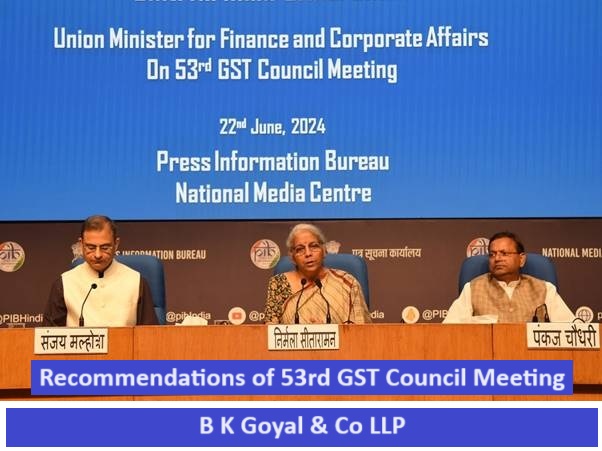Understanding GSTR 1A: Your Complete Guide
Navigating the complexities of GST compliance in India involves understanding forms like GSTR 1A. This article delves into the significance of GSTR 1A, designed for correcting errors in previously filed GSTR 1 submissions. Discover who needs to file GSTR 1A, its filing deadlines, and the essential details it covers. Stay informed to ensure accurate reporting […]
Recommendations of 53rd GST Council Meeting

The 53rd GST Council met under the Chairpersonship of Union Minister for Finance & Corporate Affairs Smt. Nirmala Sitharaman in New Delhi today. The meeting was also attended by Union Minister of State for Finance Shri Pankaj Chaudhary, Chief Ministers of Goa and Meghalaya; Deputy Chief Ministers of Bihar, Haryana, Madhya Pradesh, and Odisha; besides […]